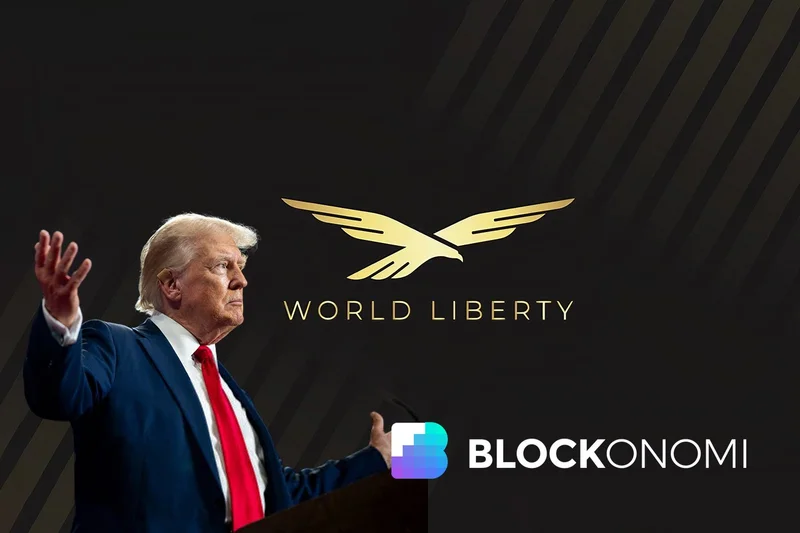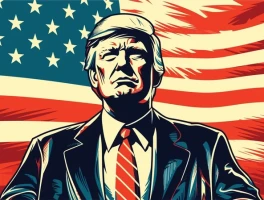Trump's Crypto Pardon: A Glimpse into a Decentralized Future?
Okay, so the headlines are screaming "corruption," "self-dealing," and all sorts of other not-so-pleasant things about Trump's pardon of crypto billionaire Changpeng Zhao. I get it. I really do. The details are messy. We've got accusations of quid pro quo, a Trump family crypto venture called World Liberty Financial (WLF), and a whole lot of money changing hands in ways that make your head spin. But let's step back for a second, peel away the layers of political intrigue, and ask a bigger question: what does all this really mean for the future of crypto and its potential to reshape our world?
Because, honestly, when I see something like this, I don't just see scandal. I see a bizarre, twisted, and admittedly unsettling signpost pointing towards a future where decentralized finance is so powerful, so deeply intertwined with global power structures, that even presidential pardons are caught in its orbit. Think about that for a moment. We're talking about a technology that's not just disrupting banking; it's potentially disrupting the very fabric of political influence.
The Big Idea: Crypto as a New Form of Global Leverage
The core of the issue, as I see it, isn't just about whether Trump profited (though that's a valid question, of course). It's about the power that crypto, specifically stablecoins like WLF, can wield on a global stage. We're talking about a currency that can bypass traditional banking systems, facilitate massive international transactions, and, yes, potentially influence political decisions in ways we're only beginning to understand.
Consider the timeline. Zhao's Binance allegedly provides software to WLF, helping it launch. An Emirati fund then pours $2 billion into WLF, a currency that had barely been on the market for a month. Then, shortly after, Trump announces that the Emirates will invest in America and the US will provide them with restricted AI chips. Harvard law professor Lawrence Lessig puts it best: “There's no clear evidence of quid pro quo. But there wouldn't be. Nobody is so stupid as to conduct themselves with that explicit structure. Instead, it's the culture of giving and exchanging in a much more informal way that we clearly know is happening right now."
It's like the early days of the internet, when everyone was scrambling to figure out how this new technology would reshape business, communication, and society. Only this time, the stakes are even higher. We're not just talking about cat videos and social media; we're talking about the potential to reshape the very foundations of global finance and political power. What happens when nations start using crypto as a bargaining chip? What happens when decentralized currencies become the primary tool for international trade? These aren't just theoretical questions; they're the questions we need to be asking right now.
The 60 Minutes report is rife with skepticism, with Elizabeth Oyer, former head of pardons at the Justice Department, flatly stating: "This is absolutely not justice. This is corruption." And sure, that might be true on one level. You can read the Trump pardon of crypto billionaire sparks concerns over his use of the pardon power, which details the full story. But isn't it also a sign that crypto is becoming so powerful that it's attracting the attention of the highest levels of power? Isn't it a sign that we're entering a new era where traditional rules no longer apply?

Of course, with great power comes great responsibility. We need to be incredibly vigilant about the potential for abuse, for corruption, for the concentration of wealth and influence in the hands of a few. But we also can't afford to let fear and skepticism blind us to the incredible potential of this technology.
This is the kind of breakthrough that reminds me why I got into this field in the first place.
Crypto's Wild West: Navigating the Ethical Minefield
And let's be real, the lack of transparency surrounding this whole situation is deeply unsettling. As the 60 Minutes report highlights, many people involved are afraid to even speak on the record, fearing retribution. That alone should give us pause. We need to demand transparency, accountability, and ethical frameworks that can keep pace with the rapid evolution of this technology.
But here's the thing: even with all the risks, even with all the uncertainties, I still believe that the potential benefits of decentralized finance outweigh the dangers. Imagine a world where financial transactions are transparent, secure, and accessible to everyone, regardless of their location or socioeconomic status. Imagine a world where individuals have more control over their own financial destinies, free from the control of centralized institutions. That's the promise of crypto, and it's a promise worth fighting for.
I saw someone on Reddit comment, "This just shows how far crypto has come. It's not just internet money anymore; it's a force to be reckoned with." And I couldn't agree more.
So, What Does This All Mean?
It means we're on the cusp of a financial revolution. It means the old rules are being rewritten, and the future is being shaped by forces we're only beginning to understand. It's scary, yes, but it's also incredibly exciting. Let's embrace the challenge, navigate the ethical minefield, and build a future where decentralized finance empowers us all.

